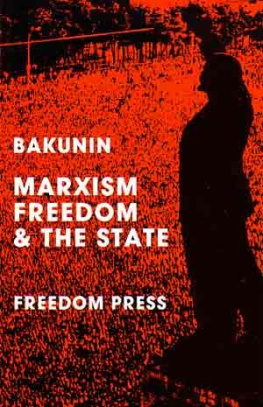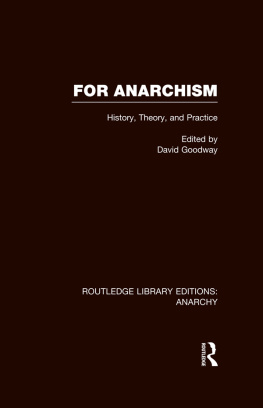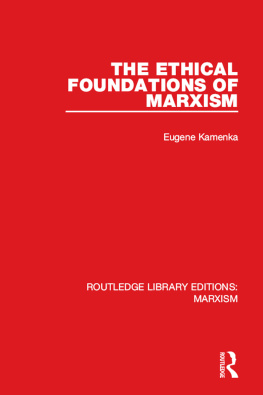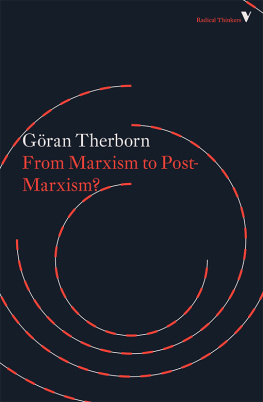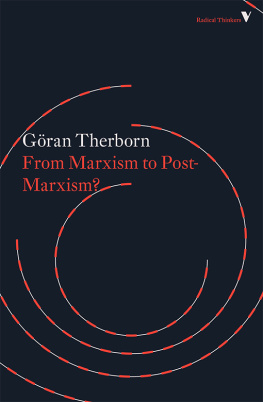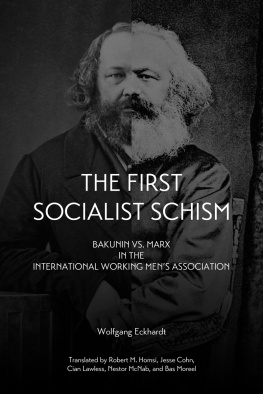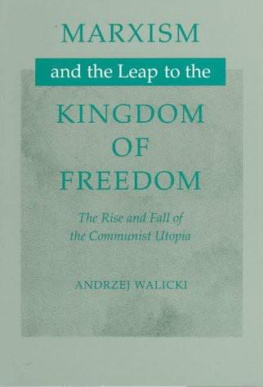Marxism Freedom and the State
by
Mikhail Alexandrovich Bakunin
1950

All Your Books Are Belong To Us !
http://c3jemx2ube5v5zpg.onion
Marxism Freedom and the State
Copyright 1950 Mikhail Alexandrovich Bakunin
This version transcriped by Natasha Morse from material published by Freedom Press, London; 1950
This book is Bakunin's version of the spit between himself and Karl Marx that took place in the late 1860s and early 1870s. Bauknin saw the schism between them arising out of different perceptions of the function of the state in the Socialist program. Specifically, Bakunin held that the International tended to be too accepting of the concept of the state, which he viewed as a dangerous and dehumanizing institution. The state, he wrote "imposes injustice and cruelty on all its subjects, as a supreme duty. It restrains, mutilates, it kills the humanity in them, so that, ceasing to be men, they are no longer anything but citizens."
Bakunin wrote the essays that detail his dispute with Marx from 1870-1872, prior to his expulsion from the International. Other essays regarding emancipation and the general characteristics of the state were excerpted from Federalism, Socialism and Anti-Theologianism, from 1867. K.J. Kenafick, an Australian editor and translator, combined these works into the book Marxism, Freedom and the State in 1950.
Contents
Translated and Edited with a Biographical Sketch by
K. J. Kenafick
TO THE MEMORY OF
J. W. (Chummy) FLEMING
WHO, FOR NEARLY SIXTY YEARS
UPHELD THE CAUSE OF FREEDOM
AT THE YARA BANK OPEN AIR FORUM
MELBOURNE, AUSTRALIA
K. J. Kenafick
[First published in 1950 by Freedom Press. Scanned in and put in HTML format by Greg Alt (galt@facility.cs.utah.edu) on January 15, 1996. There was no copyright notice found in the 1984 printing by Freedom Press. All of the text except for the footnotes, foreword, and biography were written by Mikhail Bakunin and translated and edited by Kenafick. I have tried to fix all the errors resulting from scanning, but be aware that there are probably a few left{Dana Ward corrected html errors, December, 1999}]
Liberty for all, and a natural respect for that liberty: such are the essential conditions of international solidarity.
Bakunin
Foreword
In my book Michael Bakunin and Karl Marx, I stated in a footnote that I intended to reprint certain passages from Bakunin in a booklet to be entitled Marxism, Anarchism and the State. The present work is a fulfillment of that intention; but I have slightly altered the title, because on reflection, I felt that Bakunin was here treating of wider and deeper matters than merely the merits of one political philosophy as against another. He was treating of the whole question of man's freedom in relation to society, to the community.
This question is the supreme question of our generation. On its solution depends the fate of the human race; for if the answer to the question of man's freedom in relation to the community is to be the totalitarian answer that he has none, then indeed can the march of human progress be said to have come to its end. And that end, bearing in mind the circumstances of this atomic age can only be amidst war and universal destruction.
In many parts of his writings, Bakunin has given his views on the nature and possibilities of human freedomwhich he sharply differentiated from egoism and self centred individualism. Apart from that reproduced on the first page of the extracts, perhaps the best definition he has given is that couched in the following words:
We understand by liberty, on the one hand, the development, as complete as possible of all the natural faculties of each individual, and, on the other hand, his independence, not as regards natural and social laws but as regards all the laws imposed by other human wills, whether collective or separate.
When we demand the liberty of the masses, we do not in the least claim to abolish any of the natural influences of any individual or of any group of individuals which exercise their action on them. What we want is the abolition of artificial, privileged, legal, official, influences. (Michael Bakunin and Karl Marx, p. 300)
With this view of liberty is linked Bakunin's view of authority, which he by no means equates with organisation and self-discipline, which, in themselves, he regarded as very desirable. What he meant by authority, namely the right to command or to enforce obedience, was considered by him to be fundamentally of religious origin. The idea of an authoritarianism that it is our duty to obey authority, is derived, according to his theory from religious origins, even when it has later taken political forms. Hence the opposition to religion, which takes a prominent position in his writings, much more so than in those of the Marxians, and which sometimes is rather violently expressed.
There is also another reason for the criticism of religion and churches that is to be found so frequently in his writings, and that is the close connection between religion and the State which distinguishes the Hegelian philosophy, against which Bakunin had rebelled. It is pointed out by Gide and Rist: The State, according to Hegel, is an aggression of the spirit realising itself in the conscience of the world, while nature is an expression of the same spirit without the conscience, an alter egoa spirit in bondage. God moving in the world has made the State possible. Its foundation is in the might of reason realising itself in will. It is necessary to think of it not merely as a given State or a particular institution, but of its essence or idea as a real manifestation of God. Every State, of whatever kind it may be, partakes of this divine essence. (A History of Economic Doctrines, p. 435)
Now this close identification of the spirit of God and the spirit of the State is reason enough why Bakunin, as an enemy the State, should also have considered it necessary to attack religion. Thus, the term God and the State later applied by its editors to a fragment of his works, is quite fitting. The Marxians, on the other hand, as adherents of the State, and as champions of authority, found no such necessity for making a frontal attack on religion, and encountered accordingly much less of the animous of religiously-minded people than was the fate of the Anarchists.
Opinions may differ in the Socialist movement itself as to the relative importance to be given to the discussion of the religious questions; but the matter is mentioned here only in order to explain Bakunin's attitude and to show that it had a logical development, whether or not it were the best tactic to pursue, and whether or not its fundamental assumptions were correct.
As will be indicated in more detail in the following biography, the extracts printed in this volume are taken mainly from those writings of Bakunin touching on his controversy with Marx and therefore belong to the years 1870-72; but the passages dealing with the nature and characteristics of the State in general are mostly taken from Federalism, Socialism and Anti-Theologianism written in 1867, and based, as the title indicates, on the above-mentioned close connection, to his mind, between the State and religion.
It is not only the question of the relation of Marxian doctrines to those of freedom and of the State, so much discussed in the following pages that gives them interest and importance, but also the light they throw on the system that now exists in Soviet Russia, and which calls itself Socialist and democratic, where it is, in reality, neither the one nor the other, but essentially capitalistic and totalitarian or, as Bakunin expressed it in a passage to be quoted later all work performed in the employ of the State. Bakunin showed in the early seventies of the nineteenth century that such a system


